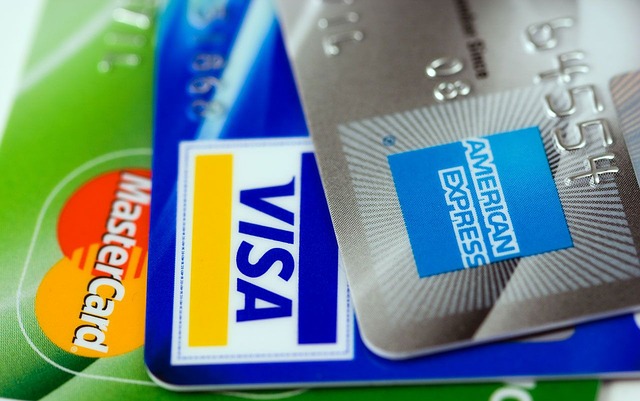If you do not have credit history, or if you ever have been denied credit, it’s time you start thinking about a secured credit card. As you know, the way you use credit cards widely impacts your financial history; so to make a good start on that history, or to restore a situation of a somewhat weak credit, a good option is to use this type of financial instrument.
In those cards, credit is secured by a deposit made in a saving account specially designed for this purpose. Thus, the credit limit will depend on the amount of that deposit.
Lots of people confuse secured credit cards with prepaid debit cards (or just prepaid cards). These work just as a normal debit card, with the proviso that the available funds have been previously pre-loaded. This category includes discount cards and the ever popular gift card.
With the intention of helping to create responsible spending habits and to contribute with security by taking away the necessity of paying with cash, many parents choose to give prepaid cards to their children; but nevertheless, and contrary to what happens with secured credit cards, the emission of the prepaid card in not informed to the credit agency, and thus the way it’s used won’t have any effect on the construction and consolidation of their personal credit history.
Although in both cases funds are guaranteed, it’s preferable to operate with the secured credit cards, since besides establishing and managing your own credit limit, you’ll be able to build a solid financial history, then within two months, the bank entities could provide the opportunity to apply for a new credit card without the down payment.
There are people decided to enter the business world, but without the necessary experience to commercially exploit certain product or service. For them, acquiring the rights to use a trademark, along with experience and key knowledge, is without doubt an attractive business formula and a very good investment option, but sometimes you can get unpleasantly surprised.
Fairs and franchising exhibitions are becoming increasingly frequent, and they are already part of the usual agenda of each year. As you know, this fairs are attended by the owners and representatives with a clear desire to sell, and therefore strive to project an image of reliability and solidity.
Trying to show the best image possible has always been important in all areas in which human beings are involved, but here is at stake both your money and your financial future; therefore, when evaluating a franchise, the first thing to avoid is to get yourself caught by the attractiveness of a franchise stand, the utilities and items offered, or multicolored well-designed commercial brochures.
Since not all franchises are equal and to avoid exposing your money and taking unnecessary risks, you should look to invest in a franchise for which you can assess how attractive it is and how much its strength is. One of the first signs that you receive from a reliable franchise, is that when you show interest in it, their representatives strive to make you understand the history of the franchise along with all its business information, putting financial data at your disposal as well as growth and expansion plans. This would be a good way to get the confidence you need to further evaluate other options. Transparency is the fundamental base of business; so you must demand it in matters that really are of your interest. In the opposite case, unreliable franchises do not try to convince you about the attractiveness of the business, instead they are trying to make an immediate sell, offering “great advantages” if you sign the contract right away.
Once you overcome that first and very important contact, common sense dictates that if you are interested in a particular brand the second step is to know certain details that will provide you greater certainty and reliability; for example: how strong is the brand you want to market in your geographic market space? What do other people who share the sector of activity in which you want to dabble in think about that brand? It’s also important that you inquire about the innovation policies that have launched the franchise and what benefits you will get from such policies. This question should also be asked about the technical and commercial assistance and in relation to product development.
Of course, it’s not enough to know the appeal of the brand to make the decision, do you already you have information on the loan and the conditions required by your creditor bank? Have you analyzed the performance figures? How long before the business will start giving profits? Can you afford that time? If the franchise gives you part of the financial support you need, in what terms would be agreed such conditions?
Finally, before getting any obligation or contractual commitment, and even if you are convinced of the attractiveness in terms of technical, financial and commercial aspects, it is advisable to seek advice from a lawyer with experience in the world of franchising. The legal advice will not only protect you against possible cases that may arise, but also will advise you on proper financial aspects, including of course the tax and labor issues you cannot ignore. As you can see, there is no way to separate franchises from finances; both go hand in hand, and while it is true that franchises aimed at the fashion industry and fast foods are the most demanded, do not forget to evaluate other options in non-traditional sectors, since the investment will be substantially lower and return rates are quite significant.
When you’re going to invest, the first questions you need to ask yourself is: Is it a worthy investment? Is it advisable to take the risk? One of the most important evaluations to differentiate one investment alternative from another is the combination of risk that you will assume, and the benefits you expect to get (profitability).
Generally, rikier investment should produce higher returns. If it were not so, any investment alternative that report the same potential benefits to another with a lower risk would cease to be attractive.
The risk is linked to the uncertainty of the benefits you actually get by investing. You can earn more than what you expect, less than desired, or you can even lose all the money you invested. There is no way to avoid the risk because profitability will never be assured.
Each alternative for investment is unique because it combines risk with profitability. Since not all alternatives have the same risk or the same return, there are two “laws” that common sense dictates and you should consider when choosing:
- Between two alternatives with EQUAL RISK, you must choose the MOST PROFITABLE ONE.
- Between two alternatives with equal PROFITABILITY, you must choose the one with the LOWEST RISK.
As you can see, you cannot separate the risk that you will assume from the profitability you expect to get, and although an investment with greater risk should produce higher returns, be careful when deciding because there is no guarantee that that will happen. To accept a higher risk does not always lead to greater profitability.
Even though it seems strange, a good salary doesn’t guarantee financial success; also having a low salary does not mean failure. Financial success depends on how you manage your personal finances to improve your quality of life and achieve your goals, regardless of how much money you earn or how big is your spending budget.
Managing your personal finances is a process that begins with knowing your current financial situation; the process continues with the establishment and prioritizing of your goals, so that you can then develop certain strategies that will allow you to get going from your current situation to achieving your goals.
As you see, this is a comprehensive planning process. It is your quality of life that you’ll get to improve and for that you can’t just be focused on a particular interest, neglecting or leaving aside others. Proper personal financial planning will allow you to make smart decisions, including the purchase of your first home, emergency fund management, education for your children, or even how to secure your quality of life after retirement.
It’s not the one who earns the most money that lives better. The one who lives better is the one who is able to get the best possible quality of life, and personal financial planning acts like the map that marks the path to achieve your dreams, realise your ideals and reach your goals. Personal financial planning thus becomes an essential piece of your route; it helps you to achieve your dreams, prioritizes your goals, alerts you about the obstacles which you may find along the way, prevents you from making terrible mistakes, prepares you to face contingencies and unforeseen events and, last but not least, offers first class information so you can make the best decisions.
As you may have noticed, your financial success depends less on your income, but rather on the clarity of your goals and the route you have designed to manage your personal finances.






MONEY RACE STUDIOS 2020 - ALL RIGHTS RESERVED - LEGAL NOTICE - PRIVACY POLICY